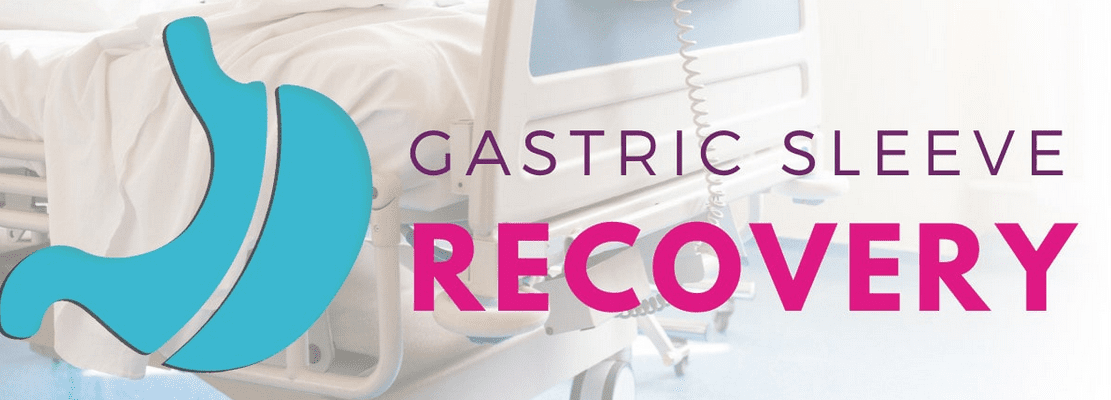
Recovery After Gastric Sleeve Surgery: Timeline, Symptoms
Table of Contents:
Last Updated on June 22, 2023
Recovery after gastric sleeve surgery.
As with any surgical procedure, recovery time is a common concern for many patients, but I’m here to tell you that most are pleasantly surprised by how quick and easy the recovery process following gastric sleeve surgery really is.
First, let’s talk about the procedure itself. Gastric sleeve surgery is minimally invasive; it’s performed laparoscopically, and typically involves 5 tiny incisions. Four of these incisions are about the width of a pea, and one—the incision through which a portion of your stomach is removed—is about the width of a toonie (⅝ of an inch). The procedure is performed under general anesthesia, and takes around 30 minutes, excluding anesthetic time.
Also read How much weight will you loose from sleeve surgery – How Long Does A Gastric Sleeve Surgery Take?
Also, You must be wondering “how long is recovery from gastric sleeve surgery”?
Gastric Sleeve Surgery Recovery Time
Gastric sleeve surgery recovery is typically quick and straightforward. Post-surgery symptoms may include nausea, bloating, fatigue, and discomfort, but these are generally mild and short-lived.
The recovery time from gastric sleeve surgery varies, but most patients can return to work within 1-3 weeks and resume normal activities in about a month. It’s important to follow your surgeon’s post-operative instructions for optimal healing.
It’s recommended to take two weeks off work for adjustment. The post-surgery diet progresses from clear fluids to a regular diet over approximately 5-6 weeks.
Most patients are back to their “normal selves” in about a week or less; what I normally say is if you have surgery on a Monday morning, by Friday you basically look like you didn’t have surgery at all!
Regular activities, such as walking or shopping, can usually be resumed within a couple of days.


Bariatric Sleeve Post-Surgery Symptoms To Avoid
Because this specialized laparoscopic surgical technique minimizes stress on your body, recovery time is much shorter than with many traditional surgeries; it has been compared to having your gallbladder removed.
That said, let’s take a look at what you generally can expect in the days following your gastric sleeve surgery:
Nausea:
When you operate on the stomach, the stomach can react by becoming nauseous. This is the main symptom that we try to avoid in the days following surgery. Thanks to a very advanced, sophisticated cocktail of medications that we administer, 80-85% of patients will not experience ant nausea following surgery; 10% will experience mild nausea for about 24 hours; and only about 5% of patients will experience more severe nausea for the three days after surgery.
Bloating:
Most patients do experience some bloating for about one to two days following the procedure.
Fatigue:
You should expect to feel tired for a day or two following your surgery. This is both as a result of the surgery (and the anesthesia) as well as the medications you’ll be taking post-surgery.
Discomfort:
Patients commonly complain about discomfort (comparable to the pain you feel after doing many crunches) at the largest incision site—through which we pull the portion of your stomach—because the muscle has been stretched and sutured in order to do so. We provide an anti-inflammatory medication to help with the pain, and most patients don’t require very much additional pain medication.
Despite these symptoms, most patients are up and about, walking outside, or going shopping within a day or two.
Generally speaking, you can return to regular day-to-day functioning within about a week. However, if possible, we do suggest taking 2 weeks off from work to focus on adjusting to your new stomach and lifestyle.
As part of your gastric sleeve post-op care program, your surgeon will tell you what you can and can’t do at each stage of your recovery.
How much should I eat after surgery
After surgery, you will progress through different diet textures throughout your recovery to support healing and ensure no unnecessary stress is put on your new, smaller stomach. Typically, patients will consume a clear fluids diet for the first 2 days after surgery, followed by a full fluids diet for 2 weeks, a pureed diet for 1 week, and a soft diet for 3 weeks. Approximately 5-6 weeks after surgery, patients can expect to be eating a regular diet.
That may seem like a lot to remember, but don’t worry! At each stage of your diet’s progression, you will be provided with detailed nutritional counseling, recipes and meal plans. Food allergies and sensitivities, likes/dislikes, and cultural preferences are always taken into account, so whether you are a vegetarian, vegan, following a gluten-free diet or just think of yourself as a “picky eater”, we will work with you to ensure your success following surgery.
During your initial consultation, Dr. Gmora and his team will review the recovery process in great detail. Contact us today to get started.






